PPR in 2020 - How We Campaigned for Human Rights (Part Three)
In this final article of the series, Seán Mac Brádaigh presents a timeline of campaigning successes throughout 2020.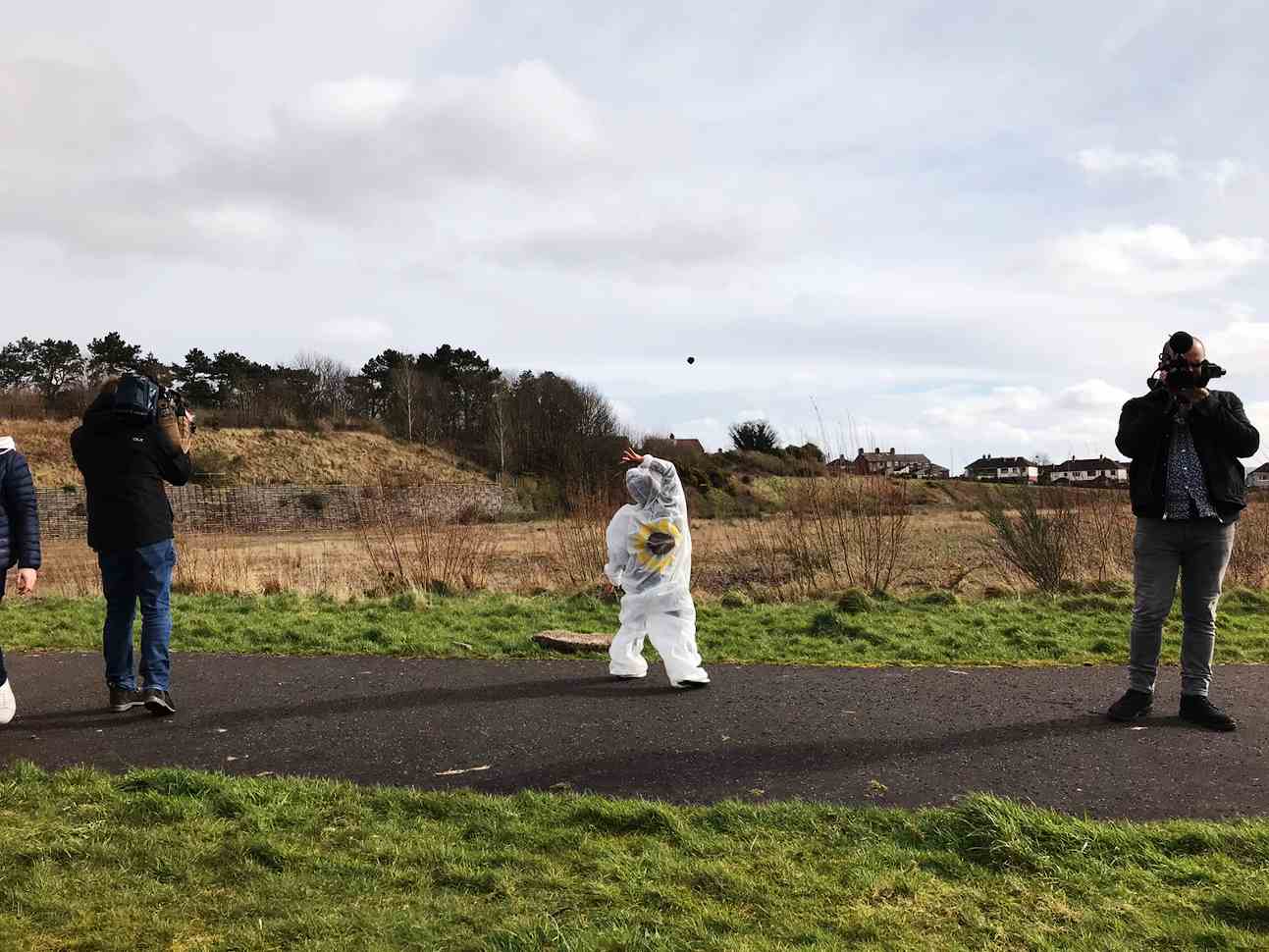
Our groups of community activists refused to slow down during 2020 despite the challenges thrown up by the Covid crisis and associated economic fall-out. If anything, they felt that their campaigns were more urgent than ever. Here we present a glimpse of what was achieved during the course of 2020.
January
The #123GP campaign published an open letter in the Irish News and Belfast Telegraph - signed by stars of sport, rock, screen and the arts - calling on the Health Minister to double funding for counselling and cap waiting times for counselling at 28 days.
It became the top story in both broadcast and print media on the day.
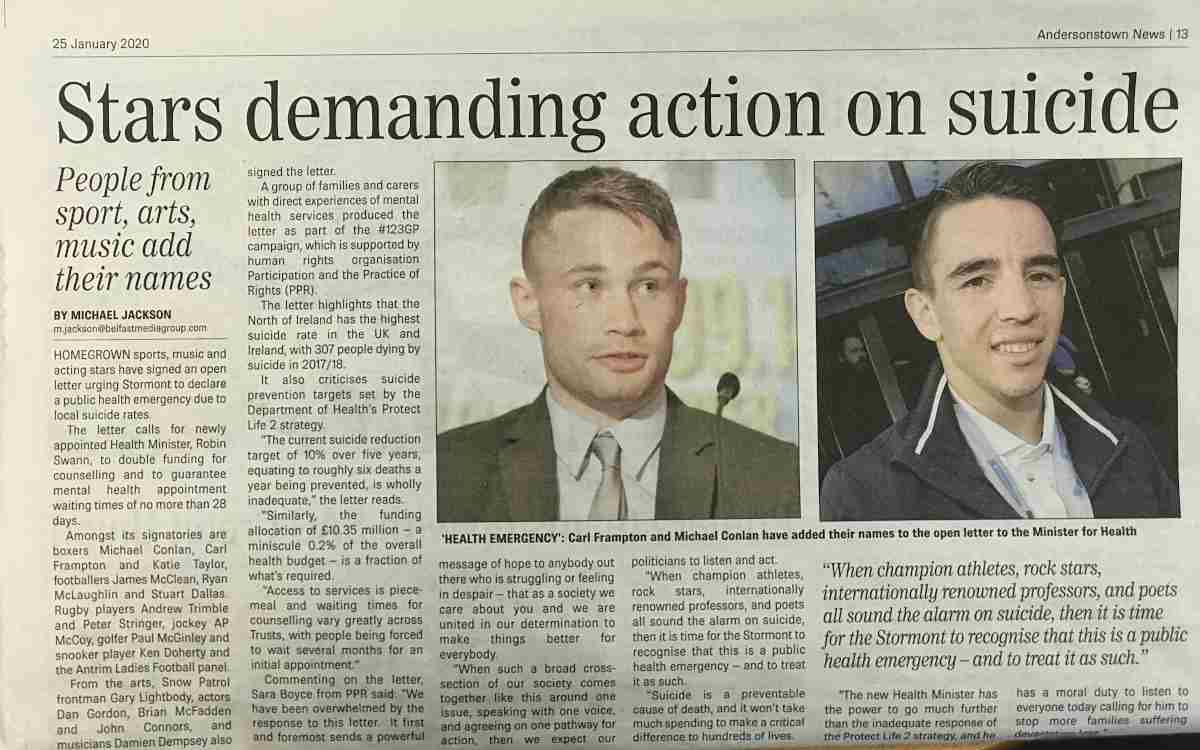
Working in partnership with the Tshishimani Centre and Clonard Youth Group, we brought over 50 young people from Belfast and South Africa together in Cape Town for a week-long programme to build capacity, understanding and skills.
February
A week-long visit to Belfast by human rights ‘prankster-vists’ The Yes Men (here as part of the Bertha Fellowship, in partnership with PPR) involved them delivering a series of workshops, 'subtervising’ and fake announcements at high-level events, and culminated in a ‘seed-bombing’ action to symbolically detoxify the land at the disused former Mackie’s site in West Belfast.

For more information about PPR’s participation in the Bertha Fellowship, read Bertha Fellow Rory Winters’ series of articles in The Detail and Bertha’s own online tools for activists.
March
PPR’s final action before our world was transformed by Covid-19 was a demonstration by the #123GP campaign at the headquarters of the Public Health Agency, calling on the Health Minister to “Wake Up and Smell the Coffee.”
Campaigners set up a coffee and information stall for passers-by. Activists and supporters turned up to show solidarity with the campaign which featured on UTV’s evening bulletin, and in a UK-wide ITN News at Ten report about the issue of mental health in Northern Ireland.
Also in March we supported people who were being subjected to impossible social security assessment processes by private companies during the lockdown, and were under threat of financial sanctions, to engage the Minister for Communities, Deirdre Hargey, with evidence. The Minister temporarily stopped these punitive assessments processes.
In the middle of the month, PPR closed our offices and have been working remotely since in solidarity with healthcare and front-line workers.
April
After the early shock of Covid-19 arriving in Ireland and in the face of the calamitous government response we started to take stock and plan for the future.
Priorities had to change, and after spending time listening to the people we support, we launched the Internet for All campaign.
We organised an open letter with over 200 organisations calling on internet providers on the island of Ireland to guarantee internet access for all, and convened workshops with the Internet for All network to develop a menu of campaign tactics.
The launch inspired storytelling by people who had no internet access as well as videos, memes and songs, and elicited various reactions from internet providers and government authorities.
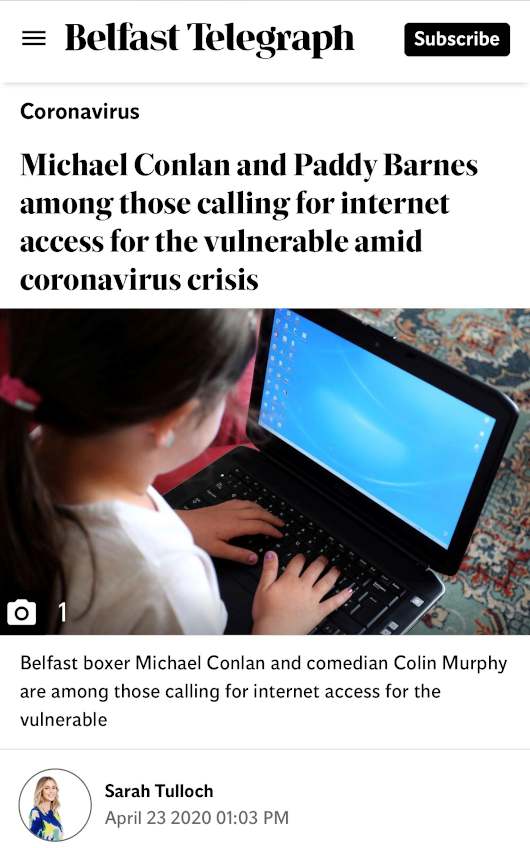
We also provided direct relief for those lacking WiFi and devices, and supported young people in their monitoring of the issue in hostels and care facilities.
The issue of digital rights is now centre stage in the public discourse.
May
Lockdown conditions meant that our planned Take Back the City seminars in April and early May had to rapidly change to a 4-part webinar series, and PPR got our first taste of events management online.
The Take Back the City series explored 4 main housing themes: Financing & Ownership, Sustainability, Architecture, and Planning.
A coalition of practitioners and institutions from the worlds of planning, architecture, sustainability and finance worked with Build Homes Now campaigners to apply the learning from the webinars to develop a vision for a prototype sustainable community at the Mackie’s site in West Belfast. Some of them presented it to the Minister for Communities later in the year.
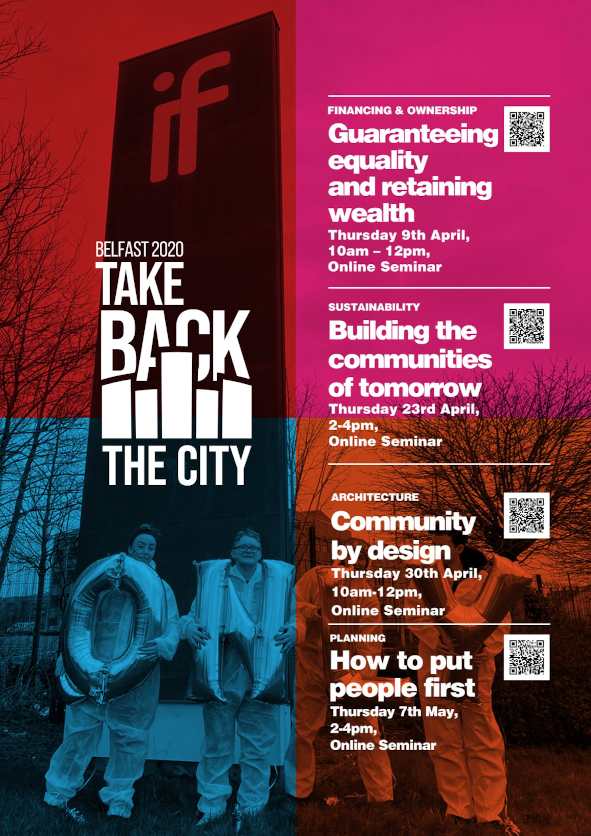
We launched our new online platform #NoOneLeftBehind during the Covid-19 crisis - a platform for investigations, policy monitoring, digital tools, blogs and voices from our campaigns and allies.
June
The Housing4All campaign organised “Ending the Hostile Environment”, a webinar to highlight conditions faced by asylum seekers under the Home Office and Direct Provision regimes and to build a network of support.
80 people attended to hear how the ban on work and housing conditions impacted on the lives of asylum seekers across Ireland. Speakers included: Housing4All activists, Movement of Asylum Seekers in Ireland (MASI) Committee on Administration of Justice (CAJ), Scottish Refugee Council, & University College Dublin.
Following the webinars, workshops were held with asylum seekers and supporters to form the #LiftTheBan campaign.
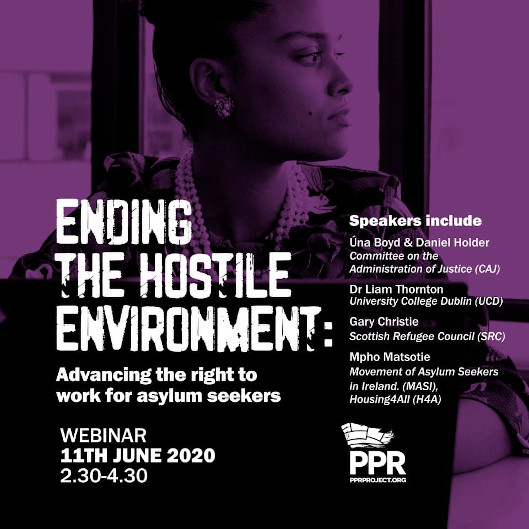
The #BuildHomesNow campaign was the subject of a podcast by The Holywell Trust and Paul Gosling.
July
Working with My Story and allies from South Africa we developed initiatives to raise awareness of violent, state-led evictions of South African shack-dwellers during Covid-19, and fundraised to help people rebuild their demolished homes in Cape Town.
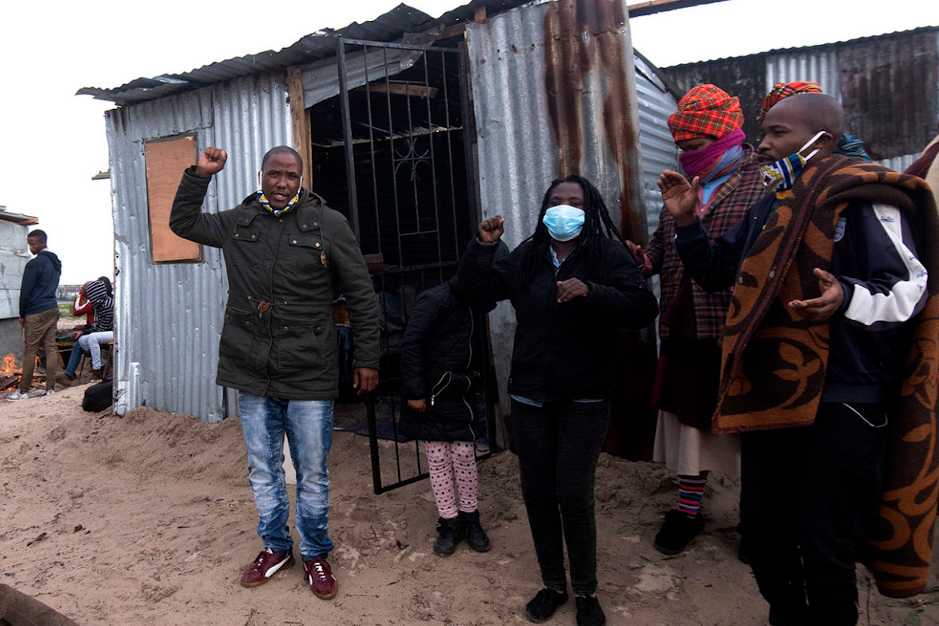
August
“Time for a Paradigm Shift” was a series of webinars in July and August with over 200 participants analysing the consistent failure by state authorities to tackle the systemic causes of poor mental health.
We were joined for one of the sessions by live illustrator Amy Ashe, who captured a video of her real-time capturing of the event.
Speakers included Jo Watson (Drop the Disorder), Doctor Sally Zlotowitz (Psychologists for Social Change), Christine Rocks (#123GP activist), Rick Burgess (Disabled People Against Cuts), Margaret McGuckian (SAVIA), Joan Corrigan (mental health campaigner), Shane Bradley (#123GP activist), Taiwo Afuape (psychotherapist and activist), Michael Patrick McDonald (award winning author and activist) and Karen McGuigan (STEPS & #123GP activist).
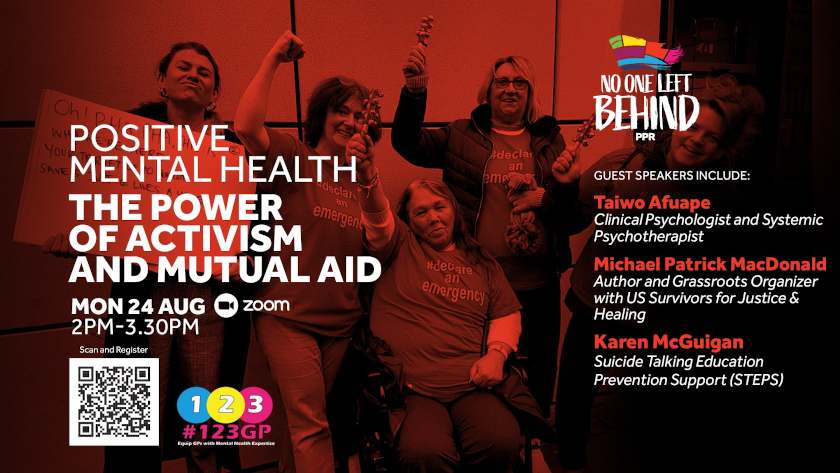
September
PPR supported groups began a series of engagements with the Communities Minister Carál Ní Chuilín to provide evidence and offer practical solutions on housing, digital rights and the right to income.
The Take Back the City coalition, Right to Work: Right to Welfare, Internet For All, Housing For All and Homeless Not Voiceless campaigns presented:
- A vision for an ecologically, socially and financially sustainable prototype neighbourhood at Mackie’s;
- a codesign process to integrate a human rights checklist into the social security decision making process;
- a report with evidence from 140 surveys demonstrating the failure to provide internet access for young people in state funded hostels and care homes;
- evidence of the housing conditions asylum seekers are enduring in Mears private landlord accommodation;
- and evidence of the widespread failure to adequately assess and officially recognise homeless status in homeless hostels by the Housing Executive.
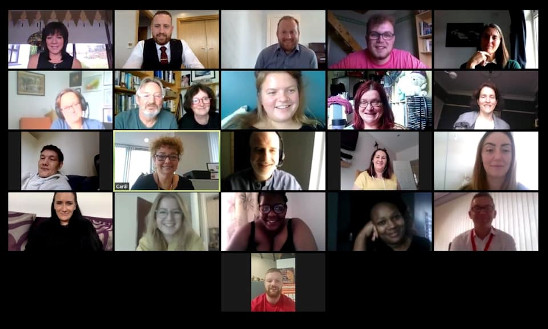
After many years of organising with dedicated human rights campaigners in Scotland our sister organisation (Making Rights Real) was constituted and formally launched.
October
Asylum seekers launched the Lift the Ban campaign calling for action at the NI Assembly to allow asylum seekers to work, earn and fully participate in our society and economy while their asylum applications are being processed. The group developed an online storytelling campaign, including memes and films, and are currently surveying asylum seekers who are excluded from the economy to assess their skills and experience.
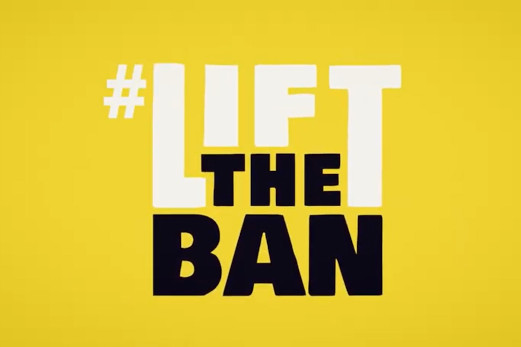
We launched the Everyone Equal campaign in partnership with PILS, CAJ and Bill of Rights NI to raise awareness of human rights tools and resources for lobbying, litigation, organising and campaigning.
Following sustained campaigning on access to GP practice-based counselling, the Health and Social Care Board commenced a review of the service.
We supported Syrian families living locally under the United Nations Vulnerable Persons Resettlement scheme to highlight their housing conditions in substandard private landlord accommodation, where they have been placed ‘temporarily’ by the NIHE. Families in Derry and Belfast will publish the evidence of their housing conditions this year.
November
We hosted ‘Ending Homelessness 2020’, a webinar series sharing lessons from current housing activism in Ireland and exploring the potential to build a rights-based housing system across the island. Powerful contributions on how to make change happen came from Homelessness Not Voiceless; the Travellers of North Cork; the Movement of Asylum Seekers in Ireland; Anti Eviction Campaigners and Student renter’s groups; Pat McArdle, the CEO of the May Day trust; author of Housing Shock, Rory Hearn; Professor of Law at Queens University, Colin Harvey; and the former United Nations Special Rapporteur on housing and current coordinator of the global Make the Shift movement, Leilani Farha.
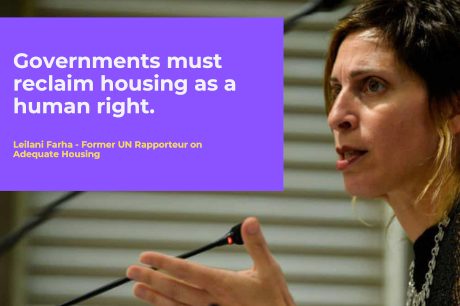
We supported sheltered housing residents to campaign for an adequate heating system in 32 residences in west Belfast. It led to a rapid turnaround, with heating restored, and reimbursements for residents within days of engaging with the Housing Minister. The residents carried out action research at the facility, surveying the impacts and are producing a report and recommendations for improvements in sheltered housing in 2021.
The Minister for Communities released a statement proposing a radical overhaul of the current housing system.
We delivered care packs with seeds, compost, soap, poetry, recipe books and more to #123GP activists across the north.
December
The Right to Work: Right to Welfare group organised the HEART art auction in partnership with the MAC Belfast, the Larder Food Bank, the Marrowbone Community Hub and Whiterock Children’s Centre. Donations of artwork poured in from over 40 local artists, including Terry Bradley and political cartoonist Ian Knox. The auction raised over £7000 to provide funds and food for families in need.
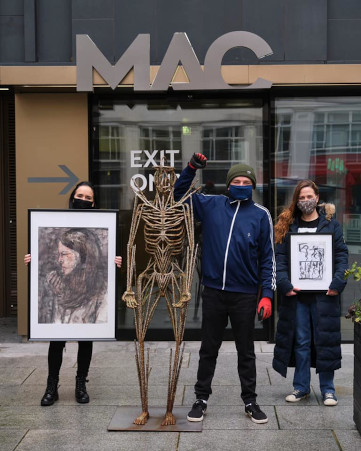
To mark Human Rights Day 2020 we participated with 30 organisations from 20 countries in the launch of a Global Homelessness Action, publishing video testimonies from people living in homelessness and campaigning to claim their right to housing.
The Internet4All campaign ended its first year with a generous donation from Ireland’s boxing champ Mick Conlan to give devices and data to young hostel residents who are currently cut off from internet access and suffering with mental health issues.
As part of our #NoOneLeftBehind campaign we supported a number of families in financial and housing stress to engage with duty bearers using our human rights complaints process – overturning poor decisions and securing new housing, repairs, social security payments and more.